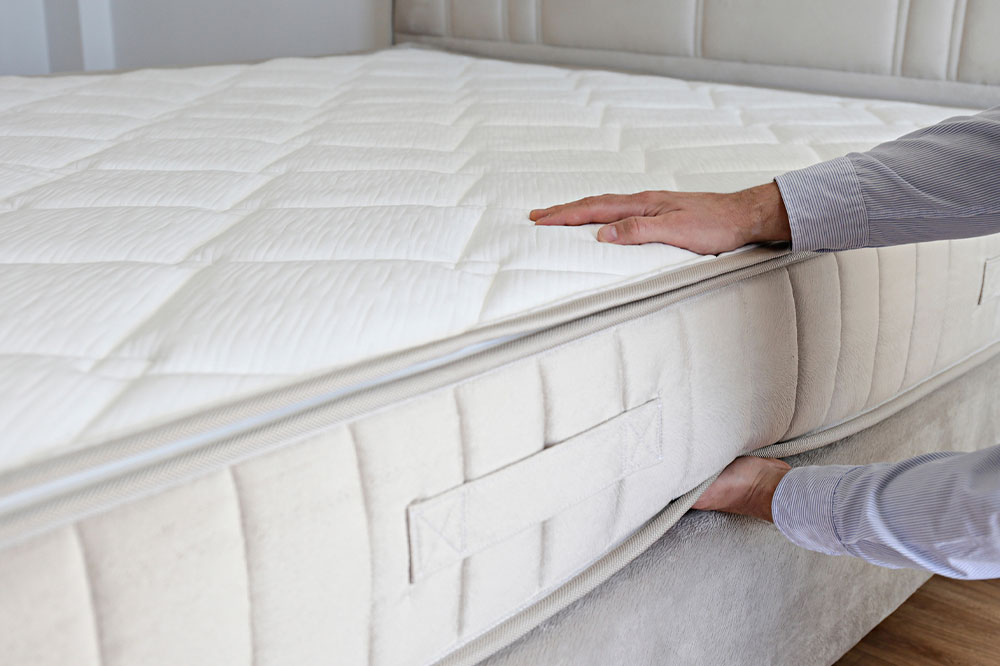7 Things to Avoid When Buying a New Mattress

Buying a mattress needs extensive research and understanding. Plenty of options are available in the market, especially with today’s lifestyle; a mattress becomes an essential resource to help you relax after a long day. A restful sleep with no back pain or other aches is a win. And so buying the right mattress is of the utmost importance, so here are tips to help you and things you should avoid when buying a mattress.
Ignoring the material
This is a common mistake made by most people. Going by claims like premium foam and quality mattresses is insufficient to buy a mattress. Here’s what you should know when buying the mattress – ask about the memory foam density. If it is anything less than 3 pounds per cubic foot, it’s not worth your money. It will be uncomfortable over time, and you will need a new mattress soon. When you check for coils, ask for the coil gauge – it should be between 12 to 15 gauges and if the answer is not that, you do not need to buy that mattress. The lower the gauge, the thicker the coil and the firmer the feel. 12 to 15 is an excellent range to keep. So always be careful of the “features” of the mattress, and ask the salesperson why they are important and how they help in better sleep. You will know if the sales executive is simply advertising or is aware of the real deal.
Avoid inexpensive products
Some good things don’t come cheap; a mattress is an example. Good mattresses use high-density foam and better coils, making the mattress much more comfortable and durable for the customer. Investing in an excellent mattress that may cost well over $1000 is always a good idea, but it will last you for over ten years, so it is a cheap investment to consider. Of course, having a budget is always good, so finding the best item in your max budget range is advised.
Avoid completely relying on warranty
Expecting a mattress to be just as new after ten years of use as it was on day 1 is not wise. Most manufacturers only cover defects like sprung springs or collapsed borders and such. These issues occur in the first year of use and can be fixed, however, most mattresses go through sagging and body indentations, so a warranty will not cover that. This is why it is advised to check the foam density and coil gauge, which can help you keep your mattress as new as possible for the longest time.
Don’t go to just any mattress store
The store near your home may have the biggest and brightest sale sign, but it does not mean that it’s the right place to buy a mattress. Picking the right store is important because they have the right staff with training. These executives understand the customers’ queries better and can recommend the right product according to the customer’s needs. As technology evolves and more mattresses help with posture and health ailments, it is just as important to have a staff that knows this information at the back of their hands.
Don’t rely on advertising
Finding anything online becomes tricky because every mattress is “best for back pain,” and you may not know any better. Many people who comment on a product with such comments believe that the product has worked for them, but experts suggest that every individual’s needs may differ. A lot of people may like a certain mattress for its firmness, but it is noted that the firmness level is not standardized in the industry. So this becomes a subjective review that may or may not help you. Some experts suggest taking a pillow with you to the mattress store, lying down on the mattress as you would sleep, and checking if the spine is aligned straight. If you’re going shopping with a friend, they can help you see if this test works. Have a detailed discussion with the sales executive and let them know of any back issues you may have, and they can then suggest the right mattress for you to test.
Avoid rushing your purchase
A rushed mattress purchase can lead to the wrong product. Mattress buying requires patience and extensive details, so always ensure you don’t buy the first product you like. Experts suggest doing a simple, quick laydown check and a complete 20-minute check on the mattress. After laying down for 20 minutes on the mattress, note down if the spine is aligned straight and if the shoulders and hips are cushioned sufficiently enough to avoid any posture issues. A lot of mattress companies allow a 30-day trial period. Take advantage of this and narrow down the choices that you would like to try out. There is no shame in this; the policy is in place for a reason.
The sale item is not the best
Of course, this may not always be true but don’t simply buy a mattress because it is on sale. Many brands play by the one-day sale tactic, inviting customers and hurrying them into buying the product. So forget about these quick, short sales. Make an informed purchase decision you will not regret after a few days. But, of course, if you have already vetted the product that is going on sale before, you’re lucky and can get your mattress at a discounted price, but that doesn’t happen too often.
Several brands are available in the market that can be relied upon. Always do your due diligence by testing the products first and conversing thoroughly with the sales executive. Also, visit a couple of other brand showrooms to compare the options and then make a decision.






